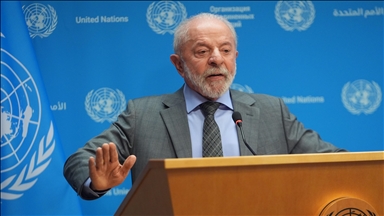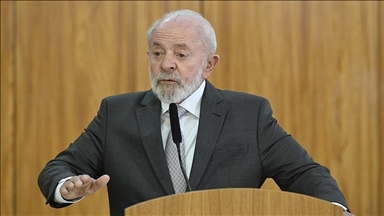
By Lucy Jordan
BRASILIA, Brazil
More than $400 billion flowed out of Brazil illegally between 1960 and 2012, a report to be released Monday shows.
The report from U.S.-based watchdog Global Financial Integrity argues that the illegal flow of cash out of the country stymied Brazil's development by draining domestic resources, exacerbating inequality, and facilitating crime and corruption.
“Illicit outflows are draining billions of dollars each year from the official Brazilian economy; money that could otherwise be used to help the nation’s economy grow," the organization's president, Raymond Baker, said in a press release.
Global Financial Integrity says illicit financial flows from Brazil totaled $401.6 billion from 1960 through 2012, and have increased from $310 million in the 1960s to $14.7 billion in the first decade of the 21st Century before jumping to $33.7 billion from 2010 through 2012, the watchdog said.
Illicit outflows occur when money leaves a country illegally as a result of crime, corruption or tax evasion, using tricks including shell companies, unrecorded wire transfers, tax havens and, particularly in Brazil's case, intentionally using incorrect invoices for trade.
The watchdog says its report reveals that 92.7% of Brazil's illicit outflows, totaling $372.3 billion, are channeled through "misinvoicing."
“Trade misinvoicing is the dominant channel for illicitly moving money out of Brazil,” said Dev Kar, the chief economist for Global Financial Integrity. “While our global analyses find that trade misinvoicing constitutes roughly 80 percent of illicit flows worldwide, the problem is particularly severe in Brazil, where it accounts for 92.7 percent of the country’s illicit outflows."
Marcos Troyjo, director of Columbia University's BRICLab, which studies governance in Brazil, Russia, India and China, told The Anadolu Agency that capital flight was a huge problem in Brazil.
"The fact that so many nationals hold resources abroad is an aggravating element to the fact that Brazil only saves 16 percent of its GDP," Troyjo said, referring to the country's gross domestic product, a measure of the size of its economy. "If these resources were in Brazil they would add more liquidity to the banking system, they could lower the cost of credit, there would be more capital available for investment. … The whole economic situation would be much better."
However, he said it was vital to distinguish between moving around money gained from illegal activities -- such as drug or arms trafficking -- and money earned legitimately but sent abroad to avoid paying taxes.
Troyjo said the "complexity and unfairness" of Brazil's tax system was in part to blame for the flood of money out of the country.
He said that if Brazil simplified its tax system, the illicit outflows of legitimate profit would be reduced significantly," Troyjo said.
"There is no other case in the developing world where a country producing a GDP in the order of US$2.5 trillion has a tax burden of 36 percent," he said.
Brazil's tax system is notoriously labyrinthine, leading many in the business world talk of an additional "Brazil Cost" that must be factored in to investments. As well as high labor and material costs and potential corruption, the "Brazil Cost" factors in high taxes, and the additional time and staff required to navigate the system.
Anadolu Agency website contains only a portion of the news stories offered to subscribers in the AA News Broadcasting System (HAS), and in summarized form. Please contact us for subscription options.




